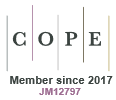Corrigendum to: Long-term watershed management is an effective strategy to reduce organic matter export and disinfection by-product precursors in source water
Hamed Majidzadeh, Huan Chen, T. Adam Coates, Kuo-Pei Tsai, Christopher I. Olivares, Carl Trettin, Habibullah Uzun, Tanju Karanfil and Alex T. Chow
International Journal of Wildland Fire
28(10) 822 - 822
Published: 21 October 2019
Abstract
Watershed management practices such as prescribed fire, harvesting and understory mastication can alter the chemical composition and thickness of forest detritus, thus affecting the quantity and quality of riverine dissolved organic matter (DOM). Long-term effects of watershed management on DOM composition were examined through parallel field and extraction-based laboratory studies. The laboratory study was conducted using detritus samples collected from a pair of managed and unmanaged watersheds in South Carolina, USA. Results showed that dissolved organic carbon (DOC), total dissolved nitrogen (TDN) and ammonium (NH4+-N) concentrations were higher in water extracts from the unmanaged watershed than from the managed watershed (P<0.01). Pyrolysis gas chromatography–mass spectrometry analysis showed that water extracts from the unmanaged watershed contained more aromatic compounds than extracts from the managed watershed. For the field study, monthly water samples were collected for 1 year (2015) from the paired watersheds. DOC and TDN concentrations, as well as DOM aromaticity, were significantly higher in the unmanaged watershed than in the managed watershed for most of the year (P<0.05) and were linked to detrital thickness, precipitation and flow patterns. The formation potential of two regulated disinfection by-products was lower in the unmanaged watershed for most of 2015 (P<0.05). From this study, it appears that long-term watershed management practices may alter detrital mass and chemistry in ways that improve water quality.https://doi.org/10.1071/WF18174_CO
© IAWF 2019


